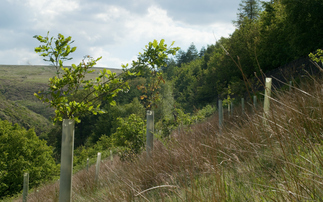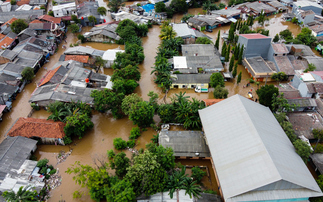Greenpeace's Andy Tait says companies should commit to traceable supply chains, but remember it is just a means to an end
Industry is waking up to the devastating loss of biodiversity, carbon storage, climate regulation, and other vital eco-system services which can only be performed by our forests.
Last month the New York Declaration on Forests was announced at the UN Climate Summit. There were more than 150 signatories, from countries to companies to NGOs and indigenous peoples organisations.
The goal is to halve deforestation by 2020 and end it entirely by 2030 through a series of measures that could include voluntary industry commitments, strengthening and enforcing regulations and the rights of indigenous peoples, bi-lateral agreements, tackling the trade in illegal commodities and a host of other options.
An irony, which reflects some of the complexities of this issue, is the participation of two particular palm oil companies - Asian Agri and Apical. Both are part of the RGE group, ultimately owned by Sukanto Tanoto. Mr Tanoto also controls two companies that continue to rely on rainforest destruction to feed their pulp mills and expand their plantation area - APRIL and Toba Pulp Lestari. APRIL is publicly on record saying that it will continue to rely on mixed tropical hardwood from Indonesia's rainforest at least until the end of 2019.
You might think that if this group understood the importance of protecting forests globally it would end its own involvement in deforestation in Indonesia.
Some of the signatories to the New York Declaration are undoubtedly serious about driving change in their supply chains and also want to see political solutions to deforestation, but the 'pick and mix' voluntary measures proposed will not be sufficient to reach Zero Deforestation globally by 2030.
We need strong laws to protect forests and the people who depend upon them, as well as better enforcement. Voluntary actions from industry are are an important step and they can be a hugely important factor in kickstarting change in forest countries. However, these actions must be consistently applied, to all relevant parts of the company and its supply chain. They must also drive real change in the business concerned. The actions must also be reinforced through government regulations which ensure that voluntary actions by some companies are not undermined by others and which also allow for forests and other conservation areas to be permanently protected.
Unfortunately, while there has never been greater momentum to address this problem, the latest figures from Indonesia show deforestation skyrocketing. In Brazil, which is regularly highlighted as a successful case study, deforestation is on the rise again, according to recent figures. Greenpeace investigations have just uncovered rampant illegality in the timber sector, particularly in Para state - the main producer and exporter of timber from the Brazilian Amazon.
So what does this mean from the perspective of companies buying commodities linked to deforestation?
Commitments to cut deforestation from the supply chain, backed with action plans and reporting remain critical. It is not enough to focus on one commodity however, as recent announcements on palm oil from the likes of Dunkin' Donuts have done.
Policies need to address all commodities that drive deforestation, with prioritisation driven by volumes purchased or levels of risk in that commodity supply chain. As well as supporting best practice, companies must also clearly commit to exclude suppliers that continue to engage in deforestation. So far there has been too much emphasis on ensuring that specific materials from a particular source are not linked to unacceptable practices - and not enough focus on whether the suppliers themselves are engaged in deforestation in other parts of their supply chain.
Traceability is critical to drive change, but it is a means to an end, delivering strong sustainability standards for commodity production that exclude deforestation. Certification must continue to play an important role but where standards are not sufficient to tackle deforestation, as is the case with Roundtable on Sustainable Palm Oil, then additional actions and verification are needed.
Increasingly NGOs will be looking for support from companies in lobbying both for better regulations and enforcement in forest countries, and for actions to help cut the demand for commodities linked to deforestation.
We're making real progress, and that should be acknowledged, but we're not out of the woods yet.
Andy Tait is senior campaign advisor at Greenpeace
@andyrtait
This article is part of BusinessGreen's Zero Deforestation Debate







